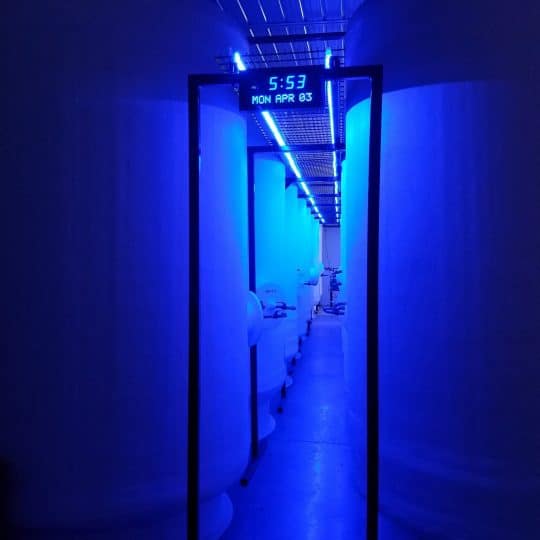Perlite’s Role in Cryogenics

Cryogenics refers to temperatures less than -150 degrees Fahrenheit. Expanded perlite is often used as a solution to help maintain this freezing temperature. Today, we’re going to look at this mineral’s role in everyday cryogenic insulation and how the Cryonics Institute uses perlite for the fascinating science of cryonics.
Perlite for Cryogenic Insulation
Super-cold cryogenic fluids, such as hydrogen and helium, are typically stored in double-walled vessels with perlite-filled annular spaces. Cryogenic perlite is a finer grade of perlite with consistencies similar to sand. Its benefits include:
- Very low thermal conductivity: λs = 0.034 – 0.042 W/(m.K)
- Very low moisture content
- Free from organic materials
- Safe for human health
- Excellent thermal properties
- Low cost
- Easy to install
- Noncombustible
- Meets fire regulations
- Doesn’t shrink, swell, warp or slump
- Pest Proof
Download our guide for Non-Evacuated Cryogenic and Low-Temperature Service to learn more about perlite’s role as a cryogenic insulator.
Cryogenic Insulation Services
Perlite plays a role in many everyday, industrial cryogenic applications, including:
- Low-temperature storage tanks
- Cold boxes
- Test Chambers
- Food Processing
- Double-walled vessels and pipes
The Cryonics Institute
The Cryonics Institute is a non-profit organization with members who seek to pursue cryonics—the practice of preserving clinically dead patients using extremely low temperatures. The object of cryonics is to stop eternal death by preserving sufficient cell structure and chemistry so that recovery remains possible by future medical and technological advances. As of right now, there aren’t viable methods for taking patients out of the cryogenic state.
Cryostats for Cryogenic Storage and Perlite’s Role
Liquid nitrogen is -321 degrees Fahrenheit. At the Cryonics Institute, patients are stored in liquid nitrogen in cryostats, which are like big thermos bottles that sufficiently maintain the temperature should a power failure happen.
The Cryonics Institute utilizes perlite to help maintain the perfect environment in the cryostats. The organization explains its reasons for choosing this mineral:
“The resulting thermal conductivity for perlite at low temperature and pressure is about 0.0007 Watts per meter-Kelvin — roughly one-thousandth the thermal conductivity of water or brick and about one-fortieth the thermal conductivity of extruded polystyrene foam boards, such as Styrofoam or Foamular. Unlike extruded polystyrene, however, which is chemically hydrophobic and impervious to moisture because of closed cells, the expanded perlite has open cells which can be infiltrated with moisture. Moisture must be maintained below 0.1 percent by weight or the insulating capability is degraded — due to the much higher thermal conductivity of water.”
Visit the Cryonics Institute website, and you will be amazed by what this organization has made possible and the applications that make the service invaluable.
Why Choose Dicaperl for Cryogenics?
At Dicaperl, we provide cryogenic insulation services and produce an extremely lightweight expanded perlite suitable for use in industrial storage vessels. Dicaperl owns and operates several portable expansion plants within our Chemrock Cryogenics division, which we can bring into action all over North America and Europe. We are uniquely positioned to ship or provide on-site portable expansion of cryogenic perlite, regardless of the amount of perlite your organization needs. Call us today at 866-728-3303 to learn more about our minerals and to request your free sample.
Join Our Mailing List
Our blog offers insight and information about new and exciting uses for perlite, diatomaceous earth, and vermiculite deriving from years of research and application. From passive fire resistance to mineral depth filtration, by subscribing to our mailing list, you will receive the latest information surrounding the Dicalite, Dicaperl, and Specialty Vermiculite brands and products.